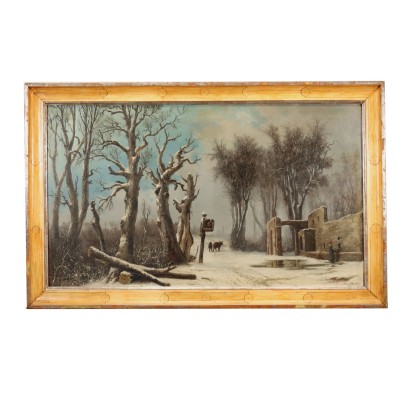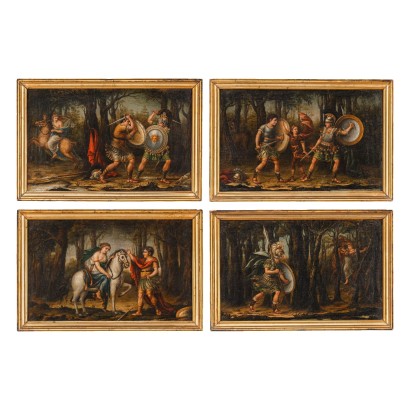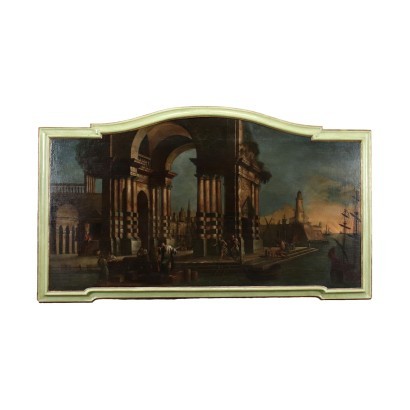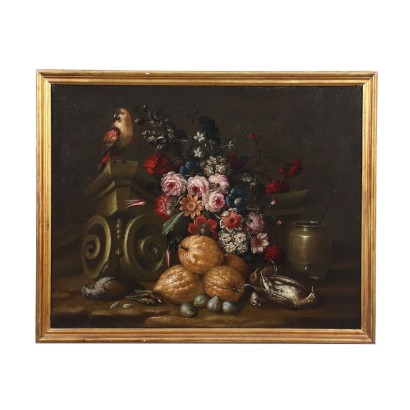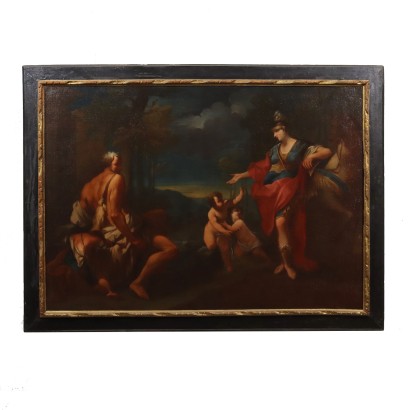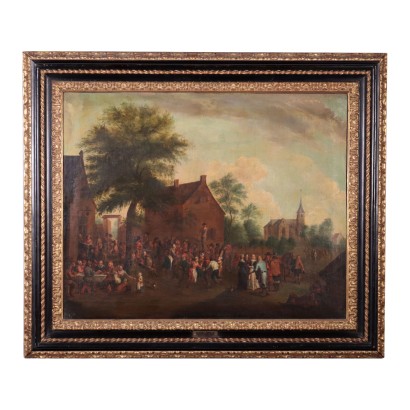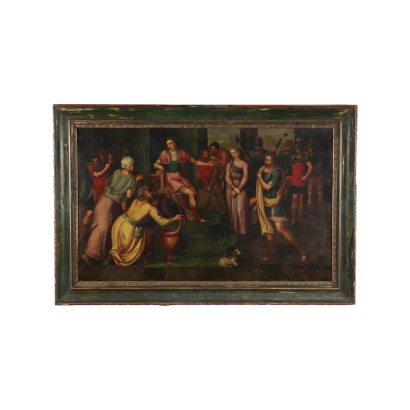ARARPI0132251
Group of 4 Antique Paintings Oil on Canvas Italy XVIII Century
Oil painting on canvas. Lombard area of the late 18th century. The four canvases show scenes from Orlando Furioso, the famous epic poem written by Ludovico Ariosto and published for the first time in 1516. On the frame, on the back, there are handwritten writings in ancient Italian, which say the title of the scene and they give the reference of the song and the verse. All four scenes represent episodes taken from the first two songs of the poem and appear to be sequential. The attributive titles are as follows: 1- “This painting represents that Paladin galiardo (Rinaldo) son of Amone sig. di Monte Albano, which describes Ariosto in canto 1 to verse 12 ”: depicts the moment in which Rinaldo, on foot of his horse Baiardo, sees Angelica escaped from the camp of Namo di Baviera in the wood. 2- "This painting represents Angelica and Ferraù when she comes to their aid, which Ariosto describes in canto 1 verse 14": Angelica fleeing from Rinaldo, meets in the woods Ferraù, a noble Saracen knight who is also in love with the girl, who helps to escape by opposing the Christian knight. 3- “This painting represents Rinaldo and Sacripante who fall down, Angelica runs away from their fury. Ariosto describes it in Canto 2 verse 10 ": Rinaldo and Sacripante fight to compete for the love of Angelica, who in the meantime runs away. 4- “This painting represents Rinaldo and Sacripante in the act they fell for Angelica and were stopped by a spirit in the form of a Valletto. Ariosto describes it in canto 2 verse 15 ": while the two knights fight, Angelica meets a hermit, who, with a spell, evokes a spirit with the appearance of a footman, who interrupts the duel between the two contenders. The paintings therefore belong to a single pictorial cycle, attributable to the end of the eighteenth century and which, in accordance with the neoclassical taste, represents the characters in classical clothes - warriors dressed as ancient soldiers, Angelica dressed in a Roman tunic, shoes and bracelet - , but inserted in a landscape of Northern Italy, a shady and dense forest. The Orlando Furioso had the peculiarity of proposing the warlike theme associated with the love one (in particular the love story between Angelica and Medoro was preferred, which became the subject of numerous works by artists of all centuries) and obtained great popularity and success: His representations were numerous in all ranges of visual pictorial art, in stately frescoes, paintings, ceramics, even apothecary jars, cups, medals, pendulums, candelabra. It began in the Emilian land, the homeland of the poem created by Ariosto for Cardinal Ludovico D'Este, to arrive at the Medici courts, in Lombardy, where subsequently Ariosto's pictorial cycles were carried out in numerous palaces and stately homes. The canvases are presented in gilded style frames.








